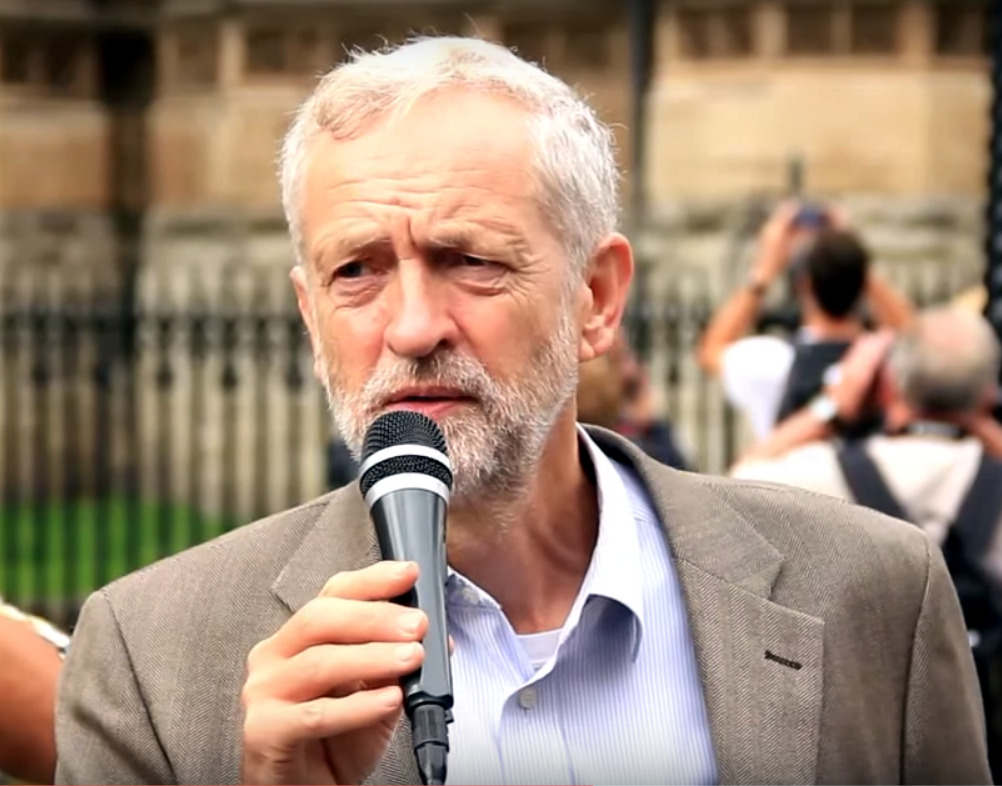Jeremy Corbyn has claimed grid operators have failed to connect renewables to the grid while overcharging their customers, branding them “even worse” than energy suppliers that “jack up prices”.
However, the Energy Networks Association (ENA) has responded by claiming the Labour leaders comments are based on debunked information and that generation connected at a distribution level has been a “success story”.
In a speech making the case for a prospective Labour government to take the UK’s energy system into public ownership, Corbyn said the green energy system necessary to tackle climate change required investment and planning “on a scale that is simply not happening under the current system”.
Speaking at the Alternative Models of Ownership Conference over the weekend, the Labour leader said: “Price cap regulation encourages private grid operators to cut costs and pay money out in dividends, not to plan how the grid will need to work in 25 years’ time, or to make the necessary long-term investments we need to get there.
“Grid operators are notorious for overcharging and causing delays in connecting renewables because they have no incentive to make it easy for clean, community generators to connect to the grid, or to encourage community grid initiatives that might end up undermining their profits.”
He also referenced findings published by Citizens Advice in July last year, which claimed that operators had been able to pocket “unjustified” profits of £7.5 billion over the last eight years.
This report was followed by another from the Energy & Climate Intelligence Unit (ECIU) think-tank, which claimed that network companies’ profit margins had added £10 billion to consumer bills in a six-year period.
A follow-up published last month concluded that as much as £20 would be added to the average energy bill due to company profits.
Both studies were rubbished by the ENA which claimed the ECIU’s findings were based on “outdated and incomplete data”, misleading figures and made basic errors in assessing the way that network companies make profits.
Network costs to the billpayer ‘flat or falling’
An ENA spokesperson today told Clean Energy News similar flaws were made by Citizen’s Advice in putting together the £7.5 billion figure used by Corbyn to attack the UK’s grid operators.
A statement released to CEN said: “We don’t agree with the modelling used by Citizen’s Advice to produce an excess profit forecast of £7.5 billion and as we stated at the time of this research being published, many of the conclusions are the same as those published 2015 but with no new real data or information.
“As part of a British Gas case brought before the Competition and Markets Authority in 2016 many of these claims were reviewed and rejected. It’s worth noting that network costs to the billpayer are flat or falling as we head into the next decade, as well as being down by almost a fifth since privatisation.”
The organisation added that network companies were also “playing their part in delivering a greener energy market in communities across the UK” with a quarter of electricity generation now connected at a distribution level.
Despite the 30GW of distributed generation connected by local distribution network operators since 2010, Corbyn maintains that tackling climate change “at the heart of our energy system” is best done with the national grid in public hands.
Protection for the many
He went on to claim that public ownership would also protect those consumers without the “natural or financial” resources to become prosumers who consume their own energy and opt out of the grid.
“We need a publicly-owned grid to act as the great leveller, distributing energy from where it is plentiful to where it is scarce and guaranteeing that everyone has access to clean, affordable energy all of the time.
“Anything else is not only unjust, it risks doing immeasurable harm to the climate cause,” he said.
The opposition leader also pledged that a future Labour government would guarantee that all those working in the energy sector would be offered retraining, a new job with equivalent terms and conditions and fully supported in their housing and income needs through the transition to public ownership.





